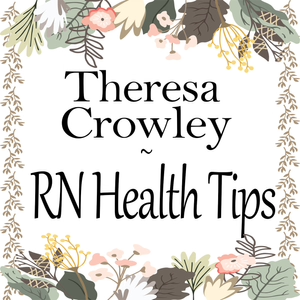
S1 Ep11: The New ABCs: Drawing on Street and Institutional Data to Scale Effective Student Supports
12/05/22 • 43 min
Traditionally, schools have been designed around a set of standard practices and expectations. When students do not fully benefit from these practices or conform to the expectations, schools either add on supports or establish consequences to try to modify behaviors and outcomes.
Over the past 15 years, researchers, school officials, and school teams have developed an approach that pools the knowledge of teachers, counselors, students, and families to identify solutions to support students more proactively, using predictive indicators of important outcomes like high school graduation or college degree attainment. This approach has been called different things, including early warning intervention systems, on-track systems, or multi-tiered student support systems. Pioneers of this work now seek to further develop it in ways that incorporate recent learnings from the brain sciences and adolescent development to create more comprehensive, inclusive student success systems.
In the 11th and final episode of season one, Carla Gay, Director of Innovation & Partnerships for the Gresham Barlow School District in Oregon, addresses some of the important elements needed to go deeper and provide better student support and school improvement initiatives.
Traditionally, schools have been designed around a set of standard practices and expectations. When students do not fully benefit from these practices or conform to the expectations, schools either add on supports or establish consequences to try to modify behaviors and outcomes.
Over the past 15 years, researchers, school officials, and school teams have developed an approach that pools the knowledge of teachers, counselors, students, and families to identify solutions to support students more proactively, using predictive indicators of important outcomes like high school graduation or college degree attainment. This approach has been called different things, including early warning intervention systems, on-track systems, or multi-tiered student support systems. Pioneers of this work now seek to further develop it in ways that incorporate recent learnings from the brain sciences and adolescent development to create more comprehensive, inclusive student success systems.
In the 11th and final episode of season one, Carla Gay, Director of Innovation & Partnerships for the Gresham Barlow School District in Oregon, addresses some of the important elements needed to go deeper and provide better student support and school improvement initiatives.
Previous Episode

S1 Ep10: A Six-State Collaboration Reimagines Today’s High School Experience
The public high school is a uniquely American invention, and our public high schools have played a powerful role in the development of our nation. The challenge is that in today’s world, a high school diploma alone is not enough to usher young people immediately into a middle-class, life-supporting existence. Further, public high schools must take all who walk in the door, regardless of prior motivations, learning experiences, and life circumstances, and find a way to graduate all of them ready for some sort of post-secondary education or training--a mission they are not currently designed to meet.
Over the past five years, a group of six states have been working with the Everyone Graduate Center at Johns Hopkins University on the Cross State High School Redesign Collaborative initiative. Many of these states are using the comprehensive school improvement provisions from the Federal Every Student Succeeds Act to organize the work. Dr. Sonja Robertson, Executive Director of School Improvement for the Mississippi Department of Education, has been part of this effort from the very beginning and joins Bob Balfanz to discuss the many things we’ve learned from this cross-collaborative effort.
Next Episode

S2 Ep1: The Necessity of Supportive Relationships
As we kick off season two of the Designing Education podcast during National Mentoring Month, Bob Balfanz is joined by Tim Wills, Chief Impact Officer for MENTOR, the leading organization in the nation working to scale high-quality mentoring in and out of school.
Positive relationships enable trust, which enables cooperation, and collective and engaged effort. They also serve as a buffer to the impacts of trauma and life's challenges. It is becoming more and more recognized that positive supportive relationships with adults are essential to school success. The pandemic drove home how important supportive relationships in schools between adults and students were to the wellbeing of all. Yet, middle and high schools have not been designed to support and enable strong adult-student relationships. Teachers often see 120 to 150 students a day, students interact with six to 10 or more adults every day for short periods of highly scripted time, which leaves little time or opportunity for students and teachers to get to know each other. As a result, everyone tends to interact with each other based on their role in the school. Thus, only about half of high school students report there is an adult at school who knows and cares about them as a person, with only about one third of students from historically underserved populations saying this. Those that said they had a supportive adult at school reported half the mental health challenges during the pandemic as those who did not. We can see that relationships really matter. They are not nice. They are necessary. So how do we close the relationship gap in schools? Tune in as we dig deep into this question.
If you like this episode you’ll love
Episode Comments
Generate a badge
Get a badge for your website that links back to this episode
<a href="https://goodpods.com/podcasts/designing-education-273426/s1-ep11-the-new-abcs-drawing-on-street-and-institutional-data-to-scale-33029096"> <img src="https://storage.googleapis.com/goodpods-images-bucket/badges/generic-badge-1.svg" alt="listen to s1 ep11: the new abcs: drawing on street and institutional data to scale effective student supports on goodpods" style="width: 225px" /> </a>
Copy




